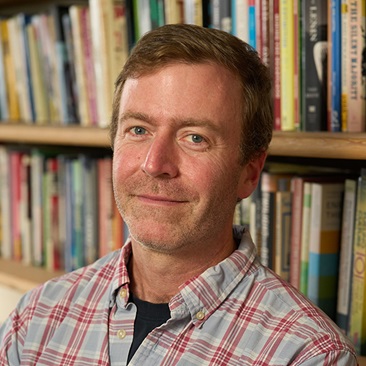full-time faculty teaching and conducting research in political science
of Maxwell faculty conduct research focused outside of the U.S.
graduate students in residence; fewer than 12 admitted each year
Undergraduate Studies
Graduate Studies

I am Maxwell.
Civic engagement is a core value for me. I have always aspired to help the communities I’m from.” Mazaher Kaila, a Maxwell alumna and third-year student at Syracuse University's College of Law, moved with her family from Sudan to Central New York when she was four years old. “I realized that to make meaningful change in society, I needed to understand the systems that power it—government and politics—and that’s insight I would gain by studying political science.”
Mazaher Kaila ’19, L’22
political science, law
Taylor Discusses the Impact of Ukraine Using Western Weapons Against Russia With Fox News, La Presse
June 11, 2024
Fox News,La Presse
But in a recent major shift, both countries agreed to allow Ukraine to use their supplied weapons to combat Russian cross-border attacks.
Brian Taylor, professor of political science and director of the Moynihan Institute of Global Affairs, believes that the authorization given by the U.S. and Germany to strikes on Russian soil with the weapons they supply could have an impact on the balance of power on Ukrainian territory.
“It is obvious,” Taylor tells La Presse, “that it will be much easier for the Ukrainians to defend the Kharkiv region, which could free up troops to fight in the Donbass,” the eastern region where Moscow is also gaining ground.
Regarding the threat by Russia to use nuclear weapons against NATO and its allies, Taylor tells Fox News, “I think it's mostly an empty threat. In some sense, both the U.S. and Russia have been deterred by the presence of nuclear weapons.
“President Biden from the very beginning after the full-scale invasion in February 2022 said that the U.S. will not be providing troops to fight in Ukraine because he didn't want the U.S. and Russia to get in a direct war. At the same time, Russia has avoided striking NATO territory, countries that border Ukraine where U.S. and other military equipment is flowing into Ukraine. Russia is not hitting out at those countries,” says Taylor.
“Because I think regardless of the war that we're in, both U.S. leader Biden and the Russian leader Putin understand that an escalation to direct nuclear war between the two countries would be catastropic for both countries. So in that sense, nuclear deterrence is still operating to shape the conflict and arguably has made the United States maybe a bit slow and hesitant at times to come to the full support of Ukraine,” he says.
Related News
Commentary

Aug 1, 2024
Commentary

Jul 31, 2024
Commentary

Jul 31, 2024
Commentary

Jul 30, 2024
BaoBao Zhang Joins First Cohort of AI2050 Early Career Fellows
One of only 15 scholars chosen from across the U.S., Zhang will receive up to $200,000 in research funding over the next two years. Zhang will use the funding to partner with the nonprofit, non-partisan Center for New Democratic Processes to test whether public participation in AI governance is increased through the creation of public assemblies, known as “deliberative democracy workshops.”
Baobao Zhang
Assistant Professor, Political Science Department

Taylor Discusses the Impact of Ukraine Using Western Weapons Against Russia With Fox News, La Presse
June 11, 2024
Fox News,La Presse
But in a recent major shift, both countries agreed to allow Ukraine to use their supplied weapons to combat Russian cross-border attacks.
Brian Taylor, professor of political science and director of the Moynihan Institute of Global Affairs, believes that the authorization given by the U.S. and Germany to strikes on Russian soil with the weapons they supply could have an impact on the balance of power on Ukrainian territory.
“It is obvious,” Taylor tells La Presse, “that it will be much easier for the Ukrainians to defend the Kharkiv region, which could free up troops to fight in the Donbass,” the eastern region where Moscow is also gaining ground.
Regarding the threat by Russia to use nuclear weapons against NATO and its allies, Taylor tells Fox News, “I think it's mostly an empty threat. In some sense, both the U.S. and Russia have been deterred by the presence of nuclear weapons.
“President Biden from the very beginning after the full-scale invasion in February 2022 said that the U.S. will not be providing troops to fight in Ukraine because he didn't want the U.S. and Russia to get in a direct war. At the same time, Russia has avoided striking NATO territory, countries that border Ukraine where U.S. and other military equipment is flowing into Ukraine. Russia is not hitting out at those countries,” says Taylor.
“Because I think regardless of the war that we're in, both U.S. leader Biden and the Russian leader Putin understand that an escalation to direct nuclear war between the two countries would be catastropic for both countries. So in that sense, nuclear deterrence is still operating to shape the conflict and arguably has made the United States maybe a bit slow and hesitant at times to come to the full support of Ukraine,” he says.
Related News
Commentary

Aug 1, 2024
Commentary

Jul 31, 2024
Commentary

Jul 31, 2024
Commentary

Jul 30, 2024
